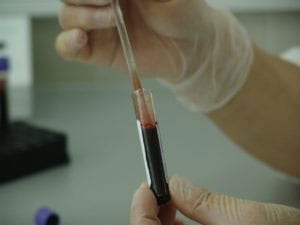Leukemia
What is leukemia?
Leukemia is a form of cancer that occurs in the tissues that form blood, such as the bone marrow and lymphatic system. There are many forms of this cancer, the majority of which are caused by an issue with white blood cells.
What are the symptoms of leukemia?
Symptoms of leukemia can vary depending on the specific form that one has. Common symptoms include:
- Easy bruising and bleeding
- Fatigue
- Weakness
- Fever
- Chills
- Frequent infections
- Unintentional weight loss
- Recurrent nosebleeds
- Swollen lymph nodes
- An enlarged liver or spleen
- Excessive sweating
- Bone pain and tenderness
- Petechiae
What causes leukemia?
There is no known cause of leukemia, but it is suspected to be a mix of genetic and environmental factors. Medical professionals do know that there is a mutation in the DNA of blood cells, leading them to grow and multiply out of control. They crowd and lower the levels of healthy blood cells.
Risk factors do exist. If one has been treated for cancer in the past, they have a higher chance of developing leukemia. Smoking, certain genetic disorders, a family history of the cancer, and exposure to certain chemicals may also heighten the risk.
How is leukemia diagnosed?
Doctors often find leukemia in routine blood tests, before symptoms occur. If this is not the case, they will perform a physical exam and a bone marrow biopsy to obtain a diagnosis.
What are the treatments for leukemia?
There are multiple treatment options for leukemia, and doctors will take many factors into consideration to decide which is the best choice. They will look at age and overall health, type, and spread.
Doctors may prescribe chemotherapy, radiation, targeted therapy, biological therapy, or a stem cell transplant.
Where can I find out more about leukemia?
Leukemia Articles


CAR-T Therapy has Improved Survival Rates for Some Pediatric Patients with Leukemia

CAR-T Cell Therapy Proves It Is Capable of Curing Leukemia


Dad Living with Dercum’s Disease and Leukemia Contracts COVID-19 Twice

-300x300.jpg)
Leukemia Survivor Arranges Make-a-Wish Trip for a Young Caroli Disease Patient
-300x300.jpg)



